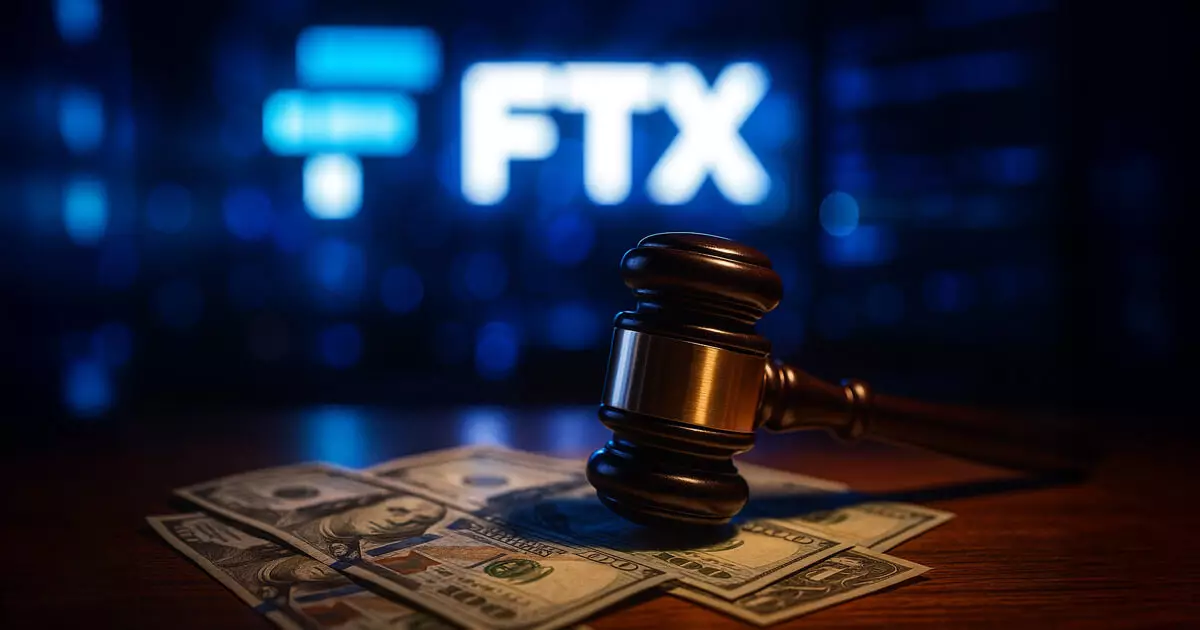The recent legal spat between FTX and Three Arrows Capital (3AC) serves as a glaring example of the consequences of reckless behavior in the highly volatile crypto market. FTX’s bankruptcy lawyers have aptly described 3AC’s $1.53 billion claim as “illogical.” This phrase doesn’t merely encapsulate a legal dispute; it sheds light on an underlying culture of irresponsibility that pervades the world of cryptocurrency. In a realm where high stakes meet reckless ambition, 3AC’s insistence on being compensated for self-inflicted losses exposes a significant issue—one where trading firms often abdicate responsibility when faced with adverse outcomes.
3AC was no stranger to risk-taking, having borrowed heavily to finance extravagant trading positions. In desperate attempts to maintain their footing, they ignored margin calls and opted instead to withdraw funds from their accounts, all while convincing themselves that they were entitled to favorable outcomes. This mentality is not just naïve; it’s dangerously delusional. As FTX’s legal team pointed out, 3AC’s financial troubles were not a byproduct of FTX’s operational mismanagement; rather, they were the direct consequence of poor judgment and reckless investment decisions.
The Fallout of Ignorance: Who Bears the Cost?
When 3AC breached margin requirements and failed to respond adequately to alarms raised by FTX, the hedge fund was not just risking its own capital—it was compounding the risks for everyone in the crypto ecosystem. Amid the turmoil spurred by the collapse of the TerraUSD stablecoin, their decision to withdraw $18 million worth of Ethereum exacerbated an already precarious situation. It is both ironic and infuriating that 3AC, despite creating this whirlwind of chaos, would now seek to bolster its losses at the expense of legitimate creditors waiting to recuperate their investments.
The legal vagueness surrounding crypto transactions and the unprecedented nature of these financial maneuvers allow firms like 3AC to manipulate the narrative to their advantage, urging a court to indemnify them against the very instability they contributed to. FTX’s argument that its liquidation of 3AC’s assets protected its balance sheet not only holds water; it serves as a stark reminder that risk management should never be an afterthought, especially not in a field as unpredictable as cryptocurrency.
The Fallout of Blame-Shifting
The attempt by 3AC to pin the blame on FTX raises further questions about corporate accountability in the crypto realm. FTX’s lawyers have suggested that 3AC is not merely seeking compensation; they are attempting to drag legitimate creditors into their financial mess, effectively making them unwitting participants in a game of blame-shifting. Suppose 3AC’s outrageous claim is allowed to stand. In that case, it sets a troubling precedent for future financial disasters, where companies facing insolvency might simply point fingers at others while neglecting to address their own failures.
There is little justification for allowing 3AC to extract value from FTX’s estate. If their argument is accepted, not only would it impact FTX’s remaining creditors adversely, but it would also nurture an environment where accountability takes a backseat to opportunism. In a market that requires rigorous self-regulation and ethical conduct, the last thing we need is a system that rewards failure and mishandling.
A Case for Rigorous Oversight and Reform
The FTX and 3AC debacle is a wake-up call for regulators and financial institutions alike. The crypto sector has long thrived in a largely unregulated environment where ideology often trumps prudence. This latest chapter underscores the urgent need for reform that promotes accountability, mandating more stringent checks on risk-taking practices. Such reforms could empower credible players while filtering out those who engage in reckless gambling disguised as investment strategy.
The fallout from this case could reverberate beyond the immediate parties involved, serving as a crucial case study for how insolvency laws interact with digital assets. As the complexities of this market evolve, so too must the frameworks designed to govern it. Firms like 3AC must not be allowed to endanger the financial well-being of their peers and investors, nor should they be permitted to evade the consequences of their actions under the guise of victimhood.
In the end, the FTX vs. 3AC clash is much more than a simple bankruptcy battle; it’s a crucial juncture that could set the tone for the future of financial accountability in crypto markets.

